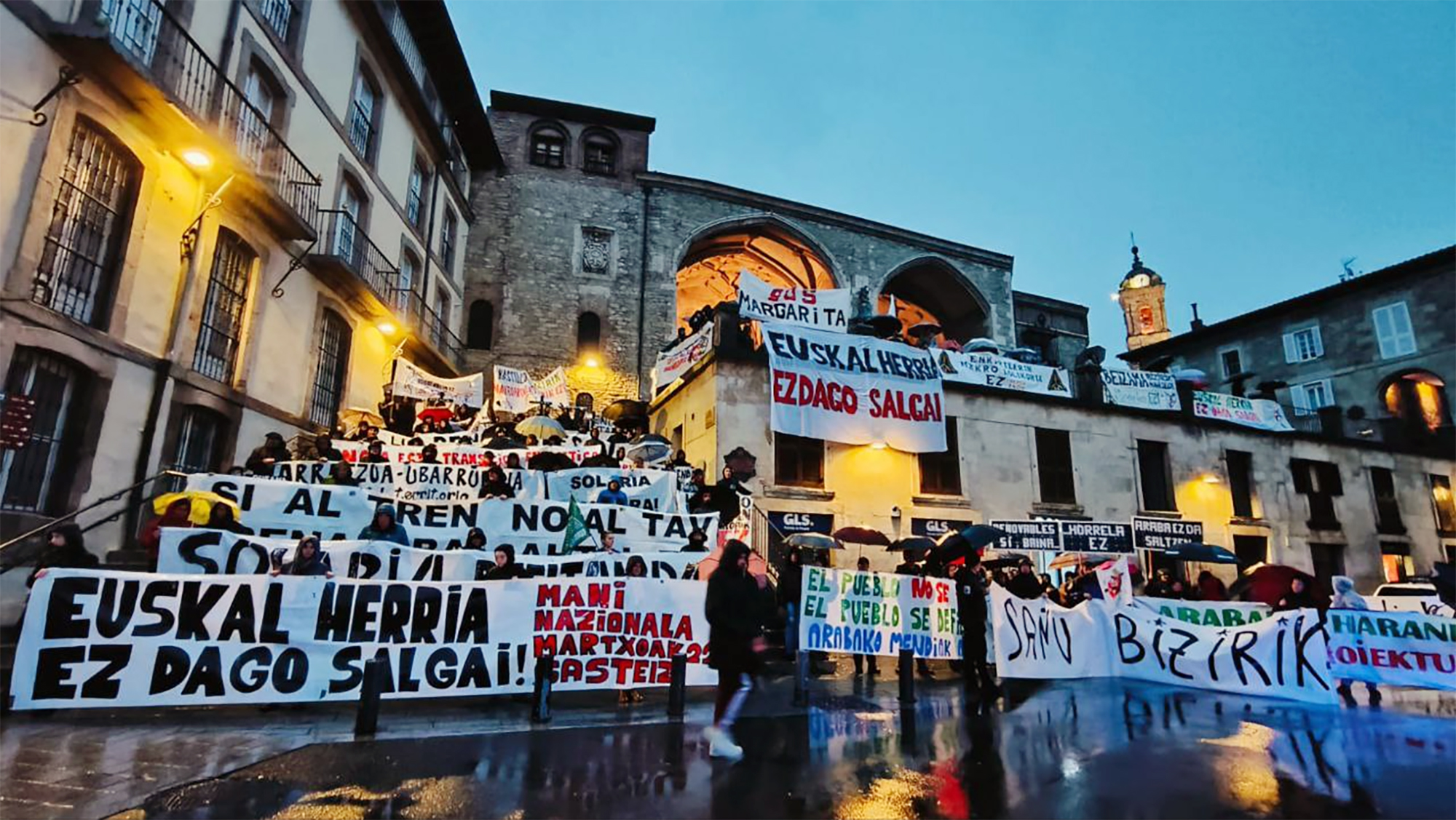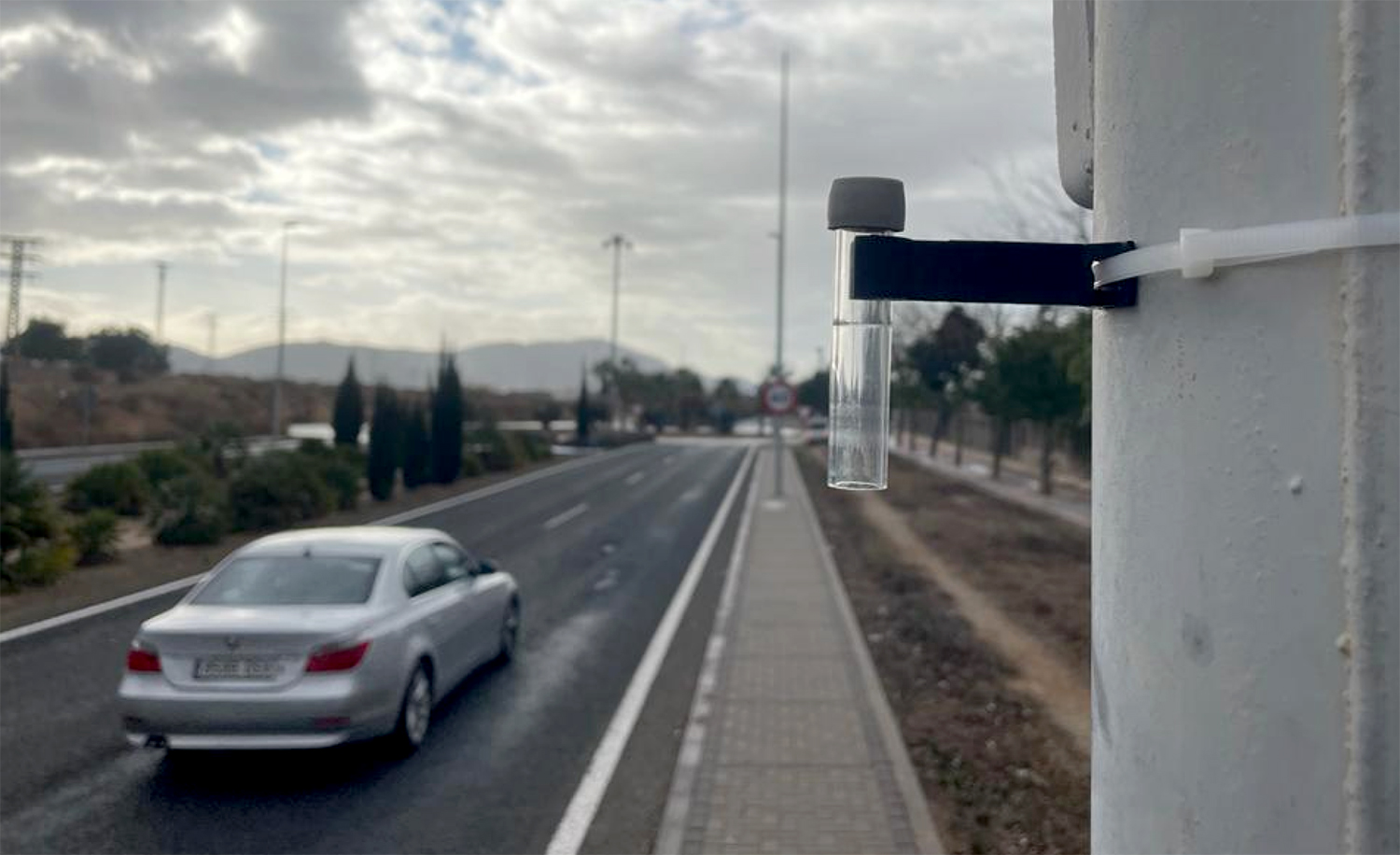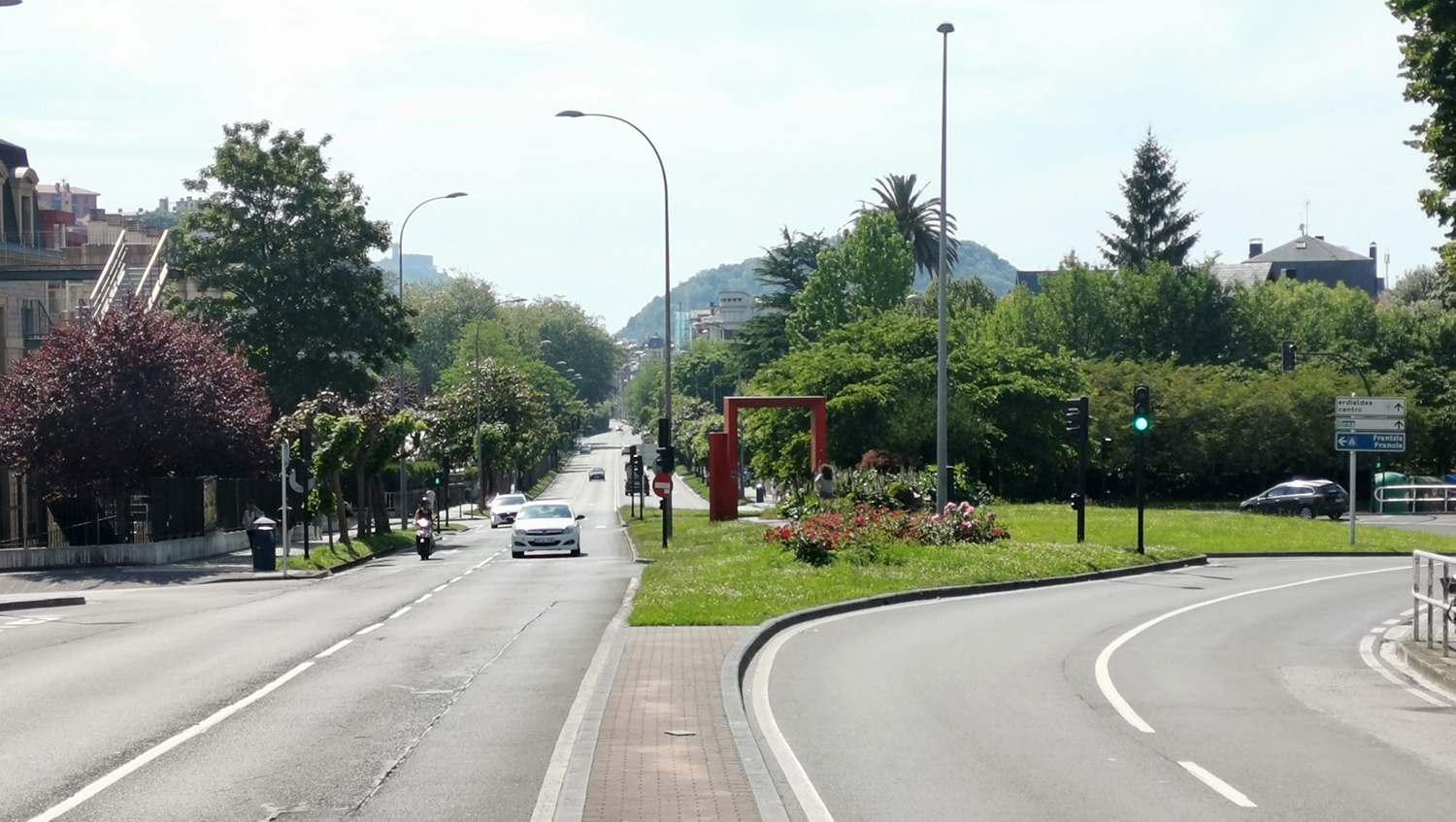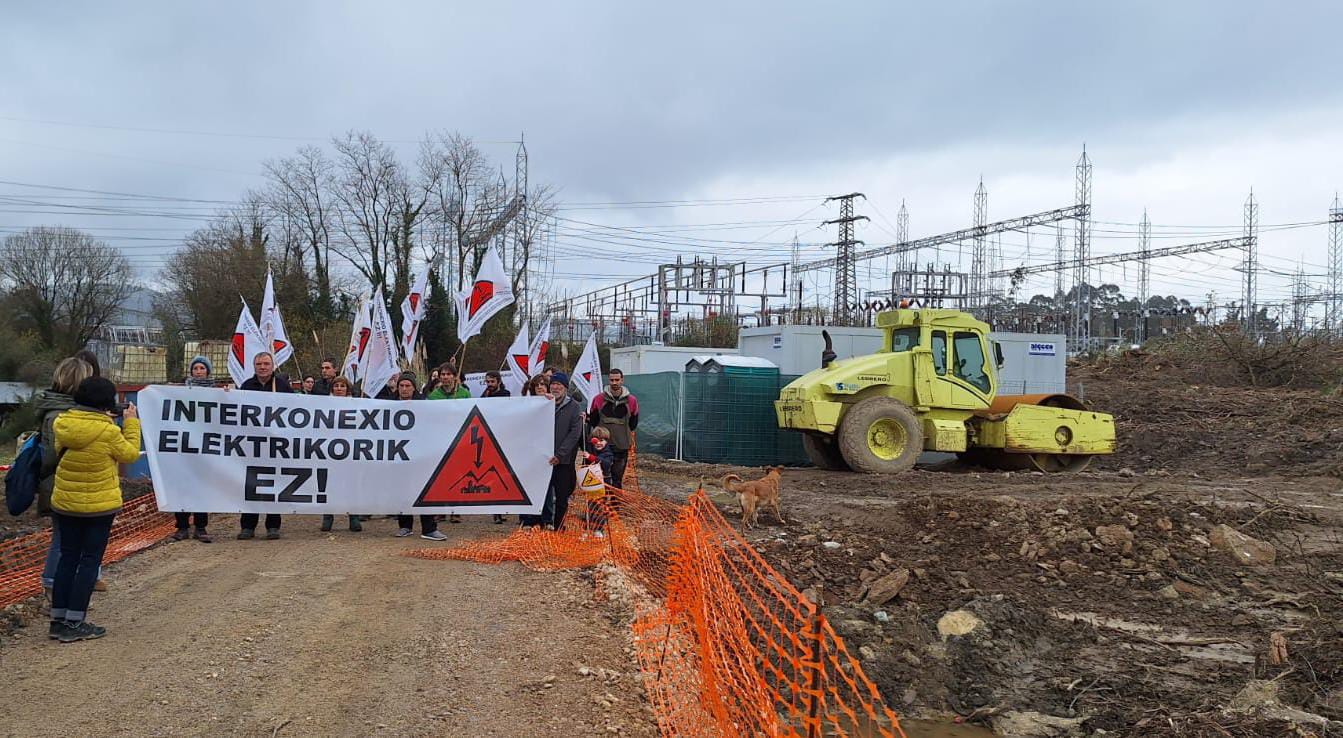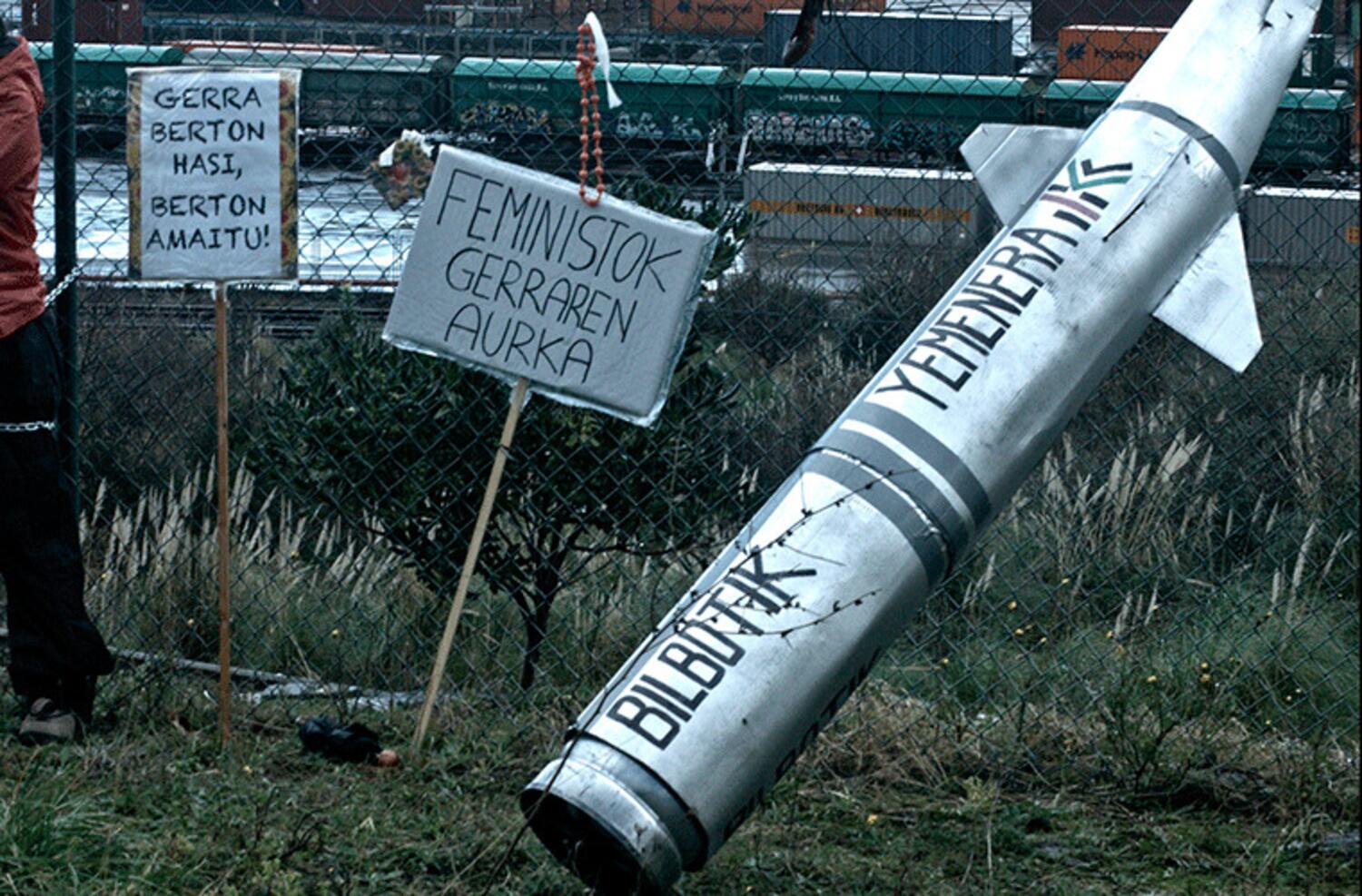Weaving communities from socioecology
- On February 26, Oihaneder Euskararen Etxea in Vitoria-Gasteiz hosted the Tejiendo Conference on Communities and New Life Models, in which UEU collaborated with various research groups – AFIT, NOR, Ekopol, Partaide. Three round tables were organized with the objective of knowing the impact of the health crisis we are living in social groups and agents, as well as the alliances and relations that are established between them. The second round table brought attendees to Zaldibar Argitu, Bizi! And they were the Larrea Table.

The first colloquium of the day focused on surveillance. Here's the talk chronicle: Weaving communities from surveillance.
Jokin Bergara, Bizi!, from the platform Zalbibar Argitu At the table were Antton Harignordoquy (by videoconference) of the movement and Lorea Flores from the Larrea Table, to reflect on sociecology. The talk was energized by Andere Ormazabal, a member of the Department of Political Science and Administration.
In this round, we tried to gather experiences related to environmentalism. The participants had to answer the following questions: Is there diversity in your groups and initiatives? What is their contribution to socioecology? Do you create alliances? How has the pandemic influenced your activity? What are your challenges?
Long live! Movement: "We want to show that another world is possible."
Bizi! born in 2009 on the mobilisations of the United Nations Conference on Climate Change in Copenhagen. They link climate urgency with social justice in their actions and use civil disobedience, but without violence, as they strategically believe they gain more in the long term. As Harignordoquy said, they are "radical and pragmatic" because they violate the laws and propose concrete measures to change things. They want to build a model that respects society and the planet, "we want to show that another world is possible and that in some way it is being built, many alternatives have already been put in place", he added.
There are 700 members in total, 40 of whom are in charge of coordination, and he states that "there must always be twenty men and twenty women, respecting parity is a rule". As for age, the youngest is 20 years old and the oldest is 60 years old. Otherwise, "the majority is white." They focus their activity on Ipar Euskal Herria, but try to ensure that all territories are represented.
"We've worked a lot on the way to look indoors," Harignordoquy observed. "We try to make engaging, thoughtful, humor and effective activities," they look for actions that move the media around EiTB. In addition, they make proposals to municipalities on the measures they can take in relation to climate change. On the other hand, Bizi! It is a bridge between people who have come from outside to live in Euskal Herria and Basque society: teaching Euskera and transmitting nationalism.
As for alliances, "we think that the best way to deal with globalisation is territory, and therefore we propose a sovereign Basque Country", a proposal that is working with many people. "In some areas of society, ecologists are still a little evil and a little evil. In some militant sectors we sometimes feel harassment, especially because of our choice not to use violence," said Bizi's member!
The Larrea Table Alliance as such
"We are members of the social, political, trade union and environmental movement of Gipuzkoa," Flores explained. It is a table to deal with the ecological emergency, a meeting point made up of different agents. In September 2019, the table was presented in the general strike against climate change. The movement against the incinerator was losing strength and there was a need to renew, strengthen and expand the environmental discourse. They also wanted to use space to reach young people. "It had to be located in Gipuzkoa, it is necessary to change the system, but from our neighborhoods, towns and cities," he added.
The Larrea Table is plural in terms of agents implicados.Normalmente, the profile of "always" ecologists is usually men over 40 years of age. In groups like Fridays for Future, on the other hand, there are girls under the age of 30 and also they are not Basque, Flores said.
At theoretical level, they have made no special contribution, as the work done so far has been carried out on the basis of previous proposals from other actors. As regards the construction of networks, they have made a great contribution in their view. For example, the network of agents has brought the dissemination of its proposal, which has also reached Bizkaia and Álava.
Flores states that when the health crisis began "the workload on a personal level increased". In the case of students, for example, he explained that many abandoned this militancy camp. On the other hand, the health crisis has also created obstacles for them: "The pandemic has made it difficult to meet and we have realized that we are not as effective through new technologies." He also asked: "The right to protest has been violated, what do we have to do to ensure that? ".
Flores explained that this table itself is an alliance. "We have very varied speeches and agents," he stressed, and stressed that "this also leads to difficulties." Tensions have been generated with different agents, as the discourses sometimes do not coincide. Environmental associations, trade unions and student and youth movements have met in Larrea and the fact that the different actors have joined gives them the opportunity to carry out major mobilisations.
"Penetration, the confluence of different sectors, has a great potential to reinforce discourses," he added. They identify the need for a meeting point for the entire Basque Country, from a socio-ecological perspective, to discuss the Basque Country. On the other hand, he stressed that waste management is a big one reto.No but recalled that "talking about waste management is talking about the last link in the chain". "You have to propose alternatives," and they identify that there's a lot of work on it. "We are clear that many times we are going to stop the projects, but that has to be combined with proposing alternatives," he added. He also raised the need to think about what kind of Basque Country we want.
Zaldibar Argitu reinforcing community governance
This platform was born as a result of the tragedy that took place at the Zaldibar landfill on 6 February 2020. "It is a collective that responds to the political situation", responds to a fact that aims to "build a political future". Bergara pointed out that it emerged from an existing social fabric, which gave them the ability to respond quickly. The aim was to try to channel rabies and, above all, to mobilize rabies. At first, an 11-point program was defined in which it can be seen "a left-wing, ecologist and negative tone".
On 14 February, a demonstration was held in Eibar, which will travel the streets of the town. The mobilization was multitudinous and varied in terms of age, origin and ideology a.Poco gradually, with the creation of the assemblies, a lot of people got closer to the initial uproar. However, the platform member pointed out that Euskera was "one of the axes" of the march and that as a result, several people stopped attending.
Community governance has had a great impact. "By creating an external enemy, internal cohesion is strengthened," it became very clear to them. "We have attached great importance to seeking the sum of the different social sectors and above all to moving the cultural sector to the centre of the popular movement," he added. Through art we wanted to convey the message, and through culture we have also tried to develop the emotional message.
In addition to denouncing "the human and ecological disaster, we wanted to highlight the issue of industrial waste and demand responsibility", as Bergara explained.
Their commitment was to go out to the plaza and make a political confrontation with the Basque Government, and to do so, they made an effective plan to the media: "We're going to give the same message over and over again to have the same effect," he added. However, Bergara has also counted on those who have come to search for the morb.
On the other hand, alliances were established with the Charter of Social Rights of the Basque Country and with some unions (ELA, LAB and CCOO). Lehendakari states that they are "interesting and strategic alliances", because, among other things, they have resources and infraestructuras.Por example, they planned to organize a citizens' stop by 12 March, but it was suspended due to the beginning of the pandemic.
They have a strong confrontation with the Basque Government and therefore have not created any alliance with them. However, he stressed that "it was necessary to have a fluid contact with political parties", as "they consider it essential" to provide effective responses. "We have time against it and there needs to be political power", added the lehendakari.Por other side, stressed the need to "raise awareness to live with less".
In the end, in order to make the round table more participative, a space was left for the reflection and thought of the questions. We started commenting on the conversation with colleagues next door, and within a few minutes we started to share our thoughts. A listener asked why these Fridays for Future youth are not Basque. "Today, environmentalism is politically correct, but not Basque environmentalism," one of them said. We conclude that young people have global references to environmentalism, Greta Thunberg is the clearest example. "The young person who participates in initiatives such as Fridays for Future does not define himself as a Basque citizen" or "is a matter of value," other participants added in the same call. The space for final reflection did not take too long, but the morning session closed with an interesting reflection.
After an hour to eat, at the booth we launched the last round table of the day: Weaving communities from self-management. We will also publish a chronicle on this last topic in ARGIA.
Do not look for this connection from Ezkio or Altsasu, let alone crossing the Ebro River through Castejón. The connection, or rather the connections, between the Basque Y and the AVE of Navarre is already a reality. It is these links in the plural that should concern us and... [+]
Euskal Herri osoan zehar daude mehatxupean hamaika baso, zelai, mendi zein nekazal lur. Horien defentsan diharduten tokian tokiko plataforma asko bildu dira larunbatean Gasteizen, EH Bizirik-ek deituta, inguru naturalaren “suntsiketaren” eta makroproiektuen... [+]
Dakota Access oliobidearen kontrako protestengatik zigortu du Ipar Dakotako epaimahai batek erakunde ekologista, Energy Transfer Partners enpresak salaketa jarri ostean. Standing Rockeko sioux tribuak protesten erantzukizuna bere gain hartu du.
Sareak nabarmendu du Euskal Herri osoko eragileak daudela bertan eta deialdiak 140tik gora atxikimendu jaso dituela: "Horrek islatzen du zein den gaur egungo errealitatearen urgentzia, lurraren defentsaren beharra eta auziarekiko dagoen konpromezua".
Greenpeaceko kideak Dakota Acces oliobidearen aurka protesta egiteagatik auzipetu dituzte eta astelehenean aztertu du salaketa Dakotako auzitegiak. AEBko Greenpeacek gaiaren inguruan jasango duen bigarren epaiketa izango da, lehenengo kasua epaile federal batek bota zuen atzera... [+]








